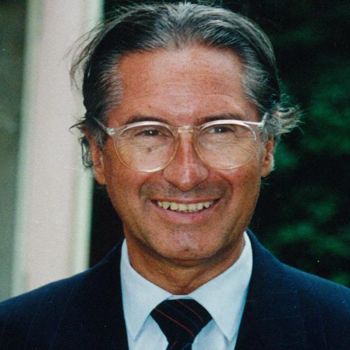Nuno Rocha, editor of the liberal national daily, Diário de Lisboa, at the time of the sudden collapse of the old right-wing regime in April 1974 and its replacement by a left-wing Supreme Revolutionary Council, played a significant role in defending press freedom in Portugal during the heady days of that country’s revolution.
Nuno Augusto Ferreira Alves Rocha was born in Porto, Portugal, on February 13, 1933. He spent a total of 16 years working as a reporter at O Primeiro de Janeiro, Diário Ilustrado, and O Diário Popular, before being appointed the director of the O Diário Popular’s Sunday edition, Diário de Lisboa, in 1972.
In September 1968, Marcello Caetano became prime minister, succeeding the dictator, António de Oliveira Salazar, who had ruled Portugal with an iron grip since 1932. Although Caetano called for political reforms when he took office, he continued Salazar’s repressive policies. “When Marcello Caetano took over the leadership of the government, hope was reborn. But, instead, censorship was tightened,” Rocha said. “At the same time, the journalists, because it was alleged that they had engaged in political activities, were repeatedly put into prison, and they spent years in these prisons of the secret police.”
Caetano was overthrown in a bloodless coup in April 25, 1974, which was initiated by the Movimento das Forças Armadas (MFA), a group of young army officers. A seven-member junta, led by Gen. António Ribeiro de Spínola, was installed and promised liberal reforms. “In Portugal, 48 years after it was trampled underfoot, the flower of liberty opened its petals on the 25th of April, and with it was reborn the freedom of the press,” Rocha told the 23rd IPI General Assembly in Kyoto, Japan, in May 1974.
However, hopes were dashed when Spínola resigned in September 1974, warning of growing communist influence. A failed counter-coup by high-ranking right-wing officers in March 1975 resulted in a swing to the left. All existing organs of the MFA were dissolved, and the Supreme Revolutionary Council was created. “Those in power at the time (revolutionary military officers and the Portuguese Communist Party), aware of the importance of the press … managed to penetrate the press milieu and dominate it completely,” Rocha said. “A year after the revolutionary action, most of the newspapers in Portugal were in the hands of communist directors and journalists.”
A pro-communist journalist — whose only apparent job was to spy on Rocha and censor his articles — was appointed to share the editor’s office. Many of Rocha’s articles were never published because they did not use the vocabulary of the revolution. Rocha quit.
“The great defenders of freedom during fascist rule, the communists and the socialists, were also the first ones to impose their domination within the media after the revolution,” Rocha said. “More important than street actions was the battle fought in editorial rooms.”
Attempting to start a new publication, Rocha was accused of being a member of a criminal association and of being closely linked to the CIA. On April 13, 1975, he was arrested at his home by soldiers of the Communist Party’s armed branch, COPCON, who detained him at the old fortress of Caxias, near Lisbon. An international outcry, including telegrams to the Portuguese prime minister from the IPI Director, Ernest Meyer, and articles in The Times of London, among other foreign newspapers, resulted in his release after 17 hours.
Unshaken, Rocha continued his efforts to publish a new paper and launched the weekly, Tempo, which adopted a liberal line and opposed the communist takeover of the press. The first edition of Tempo came out on May 29, 1975, 45 days after his release. Sales of the paper grew as the public began to value Tempo as a moderate voice during this period of transition, while the circulation of Diário de Lisboa and other communist-controlled papers plummeted. “Give me a Pravda,” was how many Portuguese — disillusioned with the propaganda contained in their once prestigious morning paper — would ask for a copy of Diário. When Portugal turned away from socialism in 1976 and elected the more moderate Gen. Ramalho Eanes, Tempo was Portugal’s best-selling newspaper, with a circulation of 150,000.
Rocha ran Tempo until 1988. He was appointed director of the journalism school at Lisbon’s Universidade Independente in 1995 and created its Center for the Study of Communications Sciences. In 1996, he founded the magazine Media XXI and remained active in promoting press freedom worldwide, particularly in Portugal’s former overseas territories, Angola, Cape Verde, Guinea-Bissau, Mozambique, São Tomé e Príncipe and East Timor.
From Our Archive:
Address of Nuno Rocha to IPI’s 23rd General Assembly in Kyoto, Japan, 1974.
“In Portugal, 48 years after it was trampled underfoot the flower of liberty opened its petals on the 25th of April and with it was reborn the freedom of the press, the right of every journalist to co-operate with his people to help mankind in its march toward progress.
IPI Director Ernest Mayer’s cable to Prime Minister General Vasco dos Santos Gonçalves, April 11, 1975, demanding Rocha’s immediate release from prison
Address of Nuno Rocha to IPI’s 24th General Assembly in Zürich, Switzerland, 1975.
“The press is free, having only to find the paths which will lead it to place itself above the political battles.”
